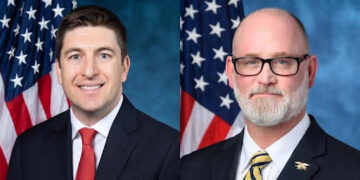The Wisconsin Supreme Court has overturned the Legislature’s authority to suspend administrative rules, marking a major constitutional shift that empowers the executive branch and reshapes how state government regulates industries, professions, and public policy.
In a 4–3 ruling in Evers v. Marklein, the court’s liberal majority declared that statutes granting the Legislature’s Joint Committee for Review of Administrative Rules (JCRAR) the power to indefinitely suspend agency rules violate the Wisconsin Constitution’s requirements for lawmaking. Under those requirements—known as bicameralism and presentment—any legislative action that carries the force of law must pass both chambers of the Legislature and be signed by the governor. Stripping JCRAR of this unilateral authority removes one of the most direct tools the legislative branch has used to check executive rulemaking for nearly 70 years.
Justice Jill Karofsky, writing for the majority, argued that allowing a legislative committee to block rules outside the formal lawmaking process creates a “shortcut” that bypasses constitutional safeguards. Justices Ann Walsh Bradley, Rebecca Dallet, and Janet Protasiewicz joined the opinion.
The case stemmed from actions taken by JCRAR to indefinitely suspend a commercial building code rule and block a professional licensing standard that functioned as a ban on conversion therapy. Governor Tony Evers and Attorney General Josh Kaul challenged those moves, asserting they amounted to an unconstitutional veto over executive branch functions.
Kaul praised the ruling as a restoration of legal order. “No longer will a small group of legislators be able to block or suspend common-sense administrative rules indefinitely,” he said. “It ends an unconstitutional legislative committee veto.” (RELATED: Wisconsin Supreme Court Strikes Down 1849 Abortion Ban in Landmark Ruling)
Senator Steve Nass, R-Whitewater, who co-chairs the JCRAR, condemned the decision in stark terms. “Today, the liberal majority of the Wisconsin Supreme Court ended nearly 7 decades of shared governance between the Legislature and executive branch agencies,” Nass said. “The liberal judicial junta has in essence given Evers the powers of a King.”
Nass accused the court of judicial activism and warned that future agency rules will be enacted without meaningful legislative oversight. “This is another devastating attack on the Wisconsin Constitution and the authority of the Legislature,” he said. “With the passage of the horrible Vos-Evers budget last week, our options to defund bureaucrats are now off the table.”
Wisconsin Manufacturers & Commerce, the state’s largest business advocacy group, offered a sharp rebuke as well. In a statement, WMC said the ruling transfers lawmaking power from elected representatives to unelected agency staff, making businesses more vulnerable to costly and impractical regulations.
“By eliminating meaningful legislative oversight, the Supreme Court has shattered any semblance of consent of the governed,” said WMC Executive Vice President Scott Manley. “Government bureaucrats do not understand the cost, practicality, economic impact, or job losses resulting from their regulation—and in many cases, they simply do not care.”
While the ruling ends the Legislature’s ability to halt rules indefinitely via committee, lawmakers still retain a narrower option: introducing a bill to block a rule through the normal legislative process, subject to gubernatorial approval. That check remains, but it is far more cumbersome and politically difficult.
Conservative Justices Rebecca Bradley and Annette Ziegler dissented from the ruling, warning it concentrates too much power in the executive. Justice Brian Hagedorn also dissented, though he focused on the building code rule and argued that the court should have ruled narrowly rather than striking down the entire JCRAR framework.
The ruling is part of a broader power shift in Madison, one made possible by the liberal court majority elected in 2023. It marks a decisive legal and political win for Governor Evers, whose agencies now have a freer hand in issuing rules with the force of law—rules that may shape everything from health care to construction to professional licensure for years to come. (RELATED: Wisconsin Supreme Court Strikes Down Legislative Oversight Of DOJ Civil Settlements)































